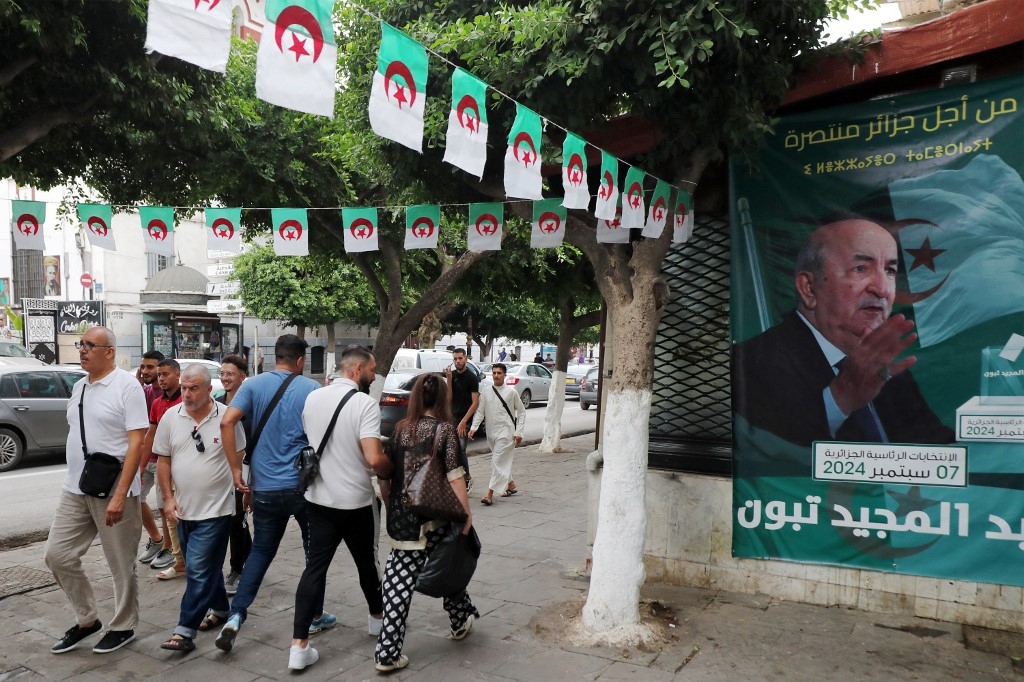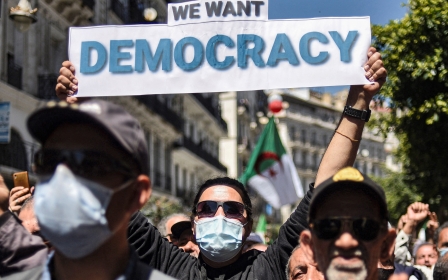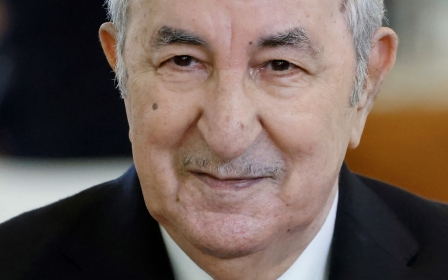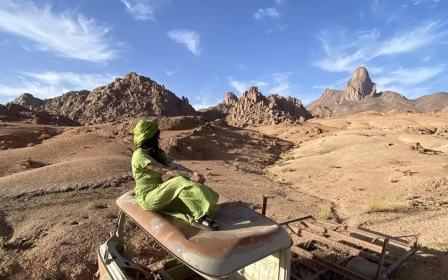Algerian president re-elected with 84.3 percent of vote, officials say

Algerian President Abdelmadjid Tebboune secured a second term with 84.3 percent of the vote in last week's election, according to final results announced on Saturday.
Omar Belhadj, president of the constitutional court, made the announcement after other candidates challenged the initial results, which had reported Tebboune winning 95 percent of the vote.
"We announce that Mr Abdelmadjid Tebboune is elected for a second term and will assume his responsibilities when he swears in," Belhadj said in a live broadcast on national TV and radio.
Backed by the military, Tebboune faced only nominal opposition from Abdelaali Hassani Cherif, a moderate conservative, and Youcef Aouchiche, a moderate secularist, both supported by Algeria’s powerful establishment.
Hassani Cherif’s campaign alleged that polling officials were pressured to inflate results and raised concerns about the failure to provide vote-sorting records to candidate representatives, as well as instances of proxy group voting.
New MEE newsletter: Jerusalem Dispatch
Sign up to get the latest insights and analysis on Israel-Palestine, alongside Turkey Unpacked and other MEE newsletters
Final tallies showed Hassani Cherif receiving 9.56 percent of the vote, while Aouchiche garnered 6.14 percent.
Tebboune's re-election signals that Algeria will likely continue its current policies, particularly its generous social spending, which has been supported by rising energy revenues since he took office in 2019, a period marked by lower oil prices.
During his first term, Tebboune expanded unemployment benefits, pensions and public housing programmes.
Russia’s 2022 invasion of Ukraine increased European demand for Algerian gas and drove energy prices higher, boosting Algeria’s state revenue after years of dwindling foreign exchange reserves and spurring new hydrocarbon projects.
Middle East Eye delivers independent and unrivalled coverage and analysis of the Middle East, North Africa and beyond. To learn more about republishing this content and the associated fees, please fill out this form. More about MEE can be found here.




